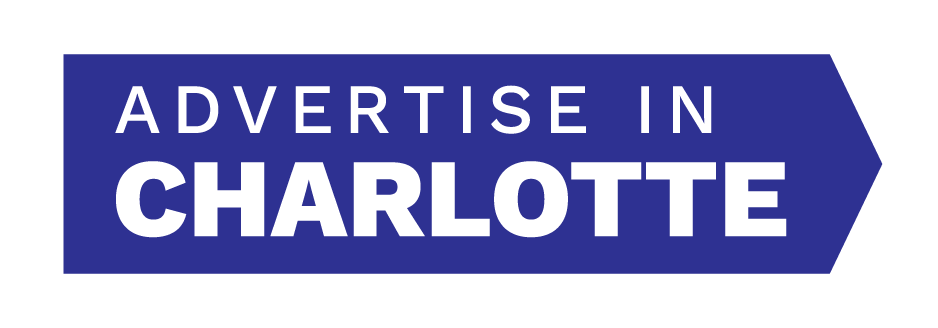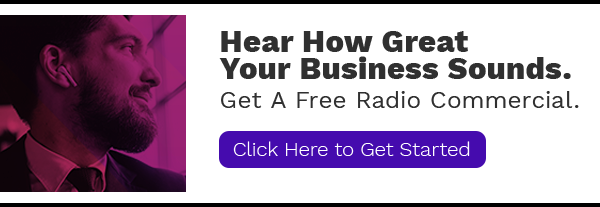 There are many ways for Charlotte small business owners to advertise. Options include newspapers, magazines, television, social media, and streaming media.
There are many ways for Charlotte small business owners to advertise. Options include newspapers, magazines, television, social media, and streaming media.
But to achieve the “3-Rs” of advertising success, Reach, Recall, and Return, no other medium delivers results as effectively and efficiently as advertising on Charlotte radio.
"At least 40% of our new customers come because of our advertising on Charlotte radio," says Deb Filkins, co-owner of Cougar Run Winery in Concord, NC. "Eighty percent of these first-time customers will become repeat customers."
Ms. Filkins and her husband Tom, who produces all the wine, opened Cougar Run in December 2012 with an inventory of 1500 bottles. The retail store is located in a historic Coca-Cola bottling plant on the city's Church Street.
"Since we started advertising on the radio, almost half of our business comes from outside the Concord area, much of it from Charlotte." says Ms. Filkins. "We now sell more than 9000 bottles of wine every year. Our monthly sales have grown from $100 a month when we opened to almost $14,000 today."
So, how can a local small business owner choose the best Charlotte radio stations to advertise on?
There are 24 radio stations that service the greater Charlotte area. Each provides a unique blend of music, information, and entertainment. Some stations focus on politics or sports. Some play country music. Some play the hits. Some play classic rock. Some are on the AM dial. Some are on FM.
Most small business owners, though, could not afford to advertise on all stations. So, how can they decide which are the right ones? It will be determined by a marketing objective.
First: Determine A Marketing Objective
An effective advertising campaign on Charlotte radio stations needs a specific marketing objective. The objective should correspond with an advertiser’s key challenges or opportunities. The objective will influence which radio stations to purchase, the length of the campaign, the timing of the advertising, as well as the length and the content of the commercials.
It is possible that over time, a business could have many different marketing objectives, but it is a proven, best practice for each campaign to focus on one. The objective selected should be crucial to the continued success of the business.
There are, generally, two types of marketing objectives:
- Branding objectives focus on convincing consumers to believe something about a product or business. For instance, a financial planner in Plaza-Midwood might want adults approaching retirement to regard her firm’s annuity plans as the safest way to ensure worry-free living.
- Promotional objectives are used when a business owner’s goal is to encourage the target consumers to take a specific action, quickly. They are usually time-sensitive with a specific call-to-action. For example, a community college in Dallas, NC might want parents of high school seniors to visit the campus during an open house at the end of the month.
- Wine enthusiasts
- Working Moms
- Under-employed college graduates
- Do-It-Yourself-Self Home Depot shoppers
- Heavy internet users
- Men planning to propose
- Pickup truck owners
A business owner may have several different target consumers. For instance, a local bank might need to target homebuyers for mortgage products; entrepreneurs for commercial loan products; smartphone users for mobile banking products; and retirees for certificates of deposit.
Although each of these targets is a viable prospect for the bank, they are likely to have little in common including their choice of radio stations due to different lifestyles and stages of life.
With a well-defined marketing objective, a business owner can be certain every element of an advertising campaign on Charlotte radio is designed to deliver the right message to the right audience at the right time.
Second: Identify The Best Radio Stations.
Charlotte radio listeners are fiercely loyal to their favorite stations. Despite numerous listening options, the typical listener tunes-in to thee stations each week. So, to create a successful advertising campaign, a business owner must identify those radio stations that attract the target consumers defined by their marketing objective.
For instance, a small chain of pizza restaurants might want to target the 232,796 moms in the Charlotte area who work full-time. It takes just three local radio stations to reach the majority of these moms. This information alone allows the restaurant owner to narrow the choices of Charlotte radio stations from 24 to 3.
The question now becomes, which combination of these 3 stations should ultimately be chosen for the ad campaign? The answer is determined by the type of marketing objective.
Third: Choose Between Reach or Frequency
A branding objective involves creating or modifying a consumer’s belief. To do this successfully requires the repetition and reinforcement of the business owner’s marketing message. This repetition is referred to as frequency. Achieving the necessary frequency can be accomplished by scheduling commercials on as few as one Charlotte radio station over a longer time frame.
A promotional objective, on the other hand, requires the largest number of target consumers to be exposed to a marketing message. This is referred to as reach. If a certain number of consumers in the Charlotte area are ready to buy, then obtaining the greatest reach possible among those listeners will increase the odds of creating a sale.
The owner of the pizza chain, in our example above, has a promotional objective: to encourage working moms to order take-out on their way home from work tonight. Because this type of objective requires reach, then budget permitting, the campaign should include the three radio stations that comprise the majority of the target consumers.
 Bradley Bird, General Manger is the General Manager of Queen Park Social in Charlotte's South End. He knows exactly how critical determining reach and frequency goals are to fulfilling marketing objectives.
Bradley Bird, General Manger is the General Manager of Queen Park Social in Charlotte's South End. He knows exactly how critical determining reach and frequency goals are to fulfilling marketing objectives.
Queen Park Social opened in March of 2017. The venue encompasses 22,000 square-feet of fun-and-games including eight bowling lanes, shuffleboard, ping-pong, vintage board games, a restaurant, and bar.
"We started out with mostly generic radio commercials at the beginning, to brand our business," says Mr. Byrd. "We wanted to let people knew where we were and what to expect when they came here."
After about four months of strict branding, Mr. Byrd switched his advertising to be event focused. Halloween, New Year's Eve, and St. Patrick's Day.
"Once people learned who we were and where to find us, we needed to give them a reason to come-in or come-back. So, our radio commercials shifted to promote specific events including our Halloween party," he says.
"In our first year, we heavily advertised our Halloween event for an entire month on Charlotte radio stations. We sold the event out," says Mr. Byrd. "The following year, we used only social media to promote the event. We ended up selling 800 fewer tickets."
"I mostly blame the lack of radio advertising for the shortfall of ticket sales," he says. "There are a lot of clubs in Charlotte where people can spend Halloween. Without radio, we really could not invite people to celebrate with us."
Rules of Thumb:
- Reach more people with a radio advertising campaign by spreading the budget over multiple stations. Used for promotional objectives.
- Increase the number of times a consumer is exposed (frequency) to an advertising campaign by using fewer radio stations. Used for branding objectives.
When a small business owner considers advertising on Charlotte radio, the information needed to make an informed station selection can be secured from a reputable radio account executive. This information includes reach and frequency data from Nielsen; local listener profiles from Scarborough; and consumer insights from Gfk MRI.
More Advertising Advice For Charlotte Small Business Owners
- Advertise In Charlotte: Reaching Furniture Shoppers
- Wine Business Boosts Sales With Advertising on Charlotte Radio
- Endorsement Advertising Builds Brand For Charlotte Small Business
- Political Advertising In Charlotte: How To Reach Likely Voters
- Business Owners Ask: How Do Charlotte Consumers Spend Their Money?
- Employment Advertising: Reach 90% Of Qualified Candidates In Charlotte




